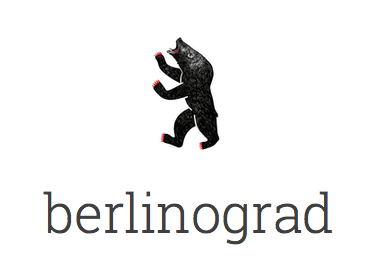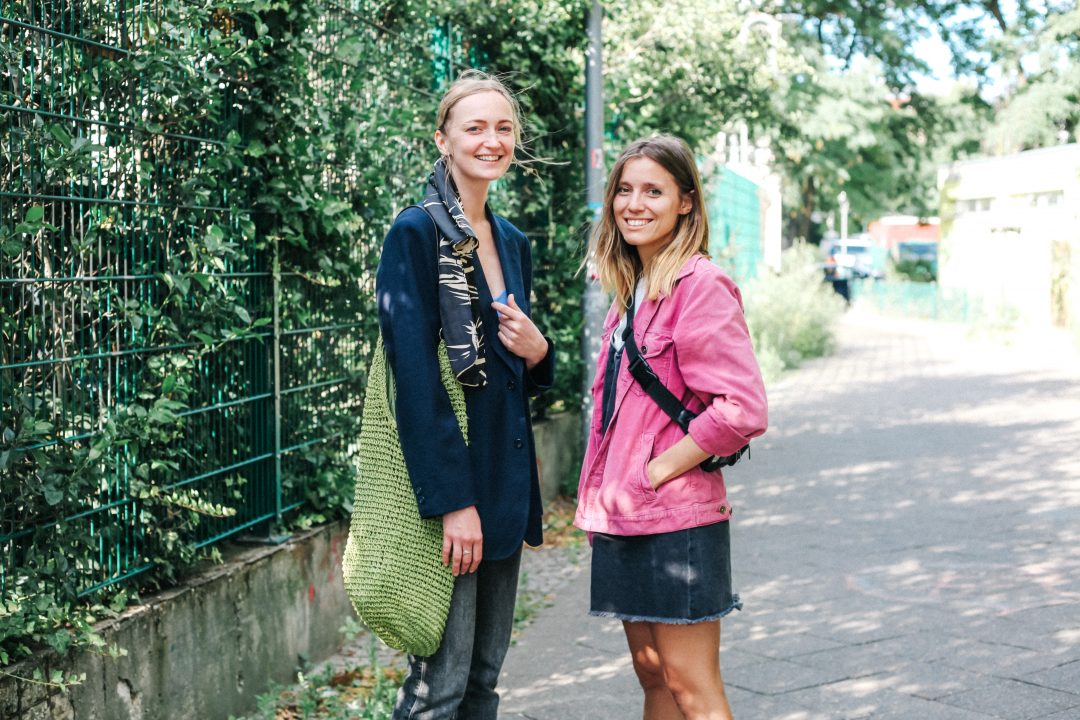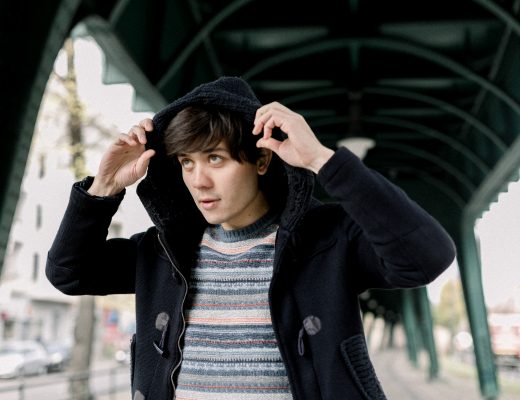We were very fortunate to meet with Anna and Karina on a warm summer day to discuss their popular blog Found on the Street. In their blog, they share stories about conscious consumption and tips about sharing culture in Berlin. But there is so much more to both of them. You can learn more about these two Berlinograders in our interview with them.
Where are you from?
Karina: I was born in Elgava, a small city 40 km away from Riga, Latvia. When I was five years old, my parents moved to Veliky Novgorod, Russia, where I lived until I turned 16. After that, I moved to St. Petersburg to study.
Anna: I was born in a tiny, remote Siberian town in the middle of Russia. I lived there until I turned 16 when I moved to St. Petersburg for school.
What is your strongest memory of your hometown?
Karina: I lived in one of the oldest Russian cities for ten years. Countless times, I passed by the church frescoed by Theophanes the Greek in the 14th century, but I never went inside. I will do it one day, hopefully. But now I know better, and I appreciate the place I live at the moment.
Anna: One of my strongest memories was of licking the iron surface outside in the winter and having my tongue stick to it. Also, waking up sounds of howling wolves near our house close to the forest.
What did you do for work when you lived in Russia?
Karina: In Novgorod as a teenager, I worked in an office. And in St. Petersburg, I was an intern at The St. Petersburg Times and worked in the PR department for a local TV Channel, the city expo hall, and a Spanish language school. After that, I worked as a freelance copyeditor and translator.
Anna: While I was a student, I worked for a youth media outlet as a journalist, and I wrote and photographed for the German newspaper in Saint Petersburg.
When did you first come to Germany?
Karina: The first time I visited Germany was with my family on a road trip in 2004. We drove from Rostock to Offenburg, which is in the southern part of the country. I remember we missed a lot of exits from the driveways. I have a very vivid memory of an exhausting, four-hour border crossing check on the Russian-Finnish border on our way to Germany. After that it was a weird feeling to be able to travel to France without showing our documents at the border at all.
Anna: The first time I came to Berlin was in 2006 for an internship with a Russian TV network. I knew that I would come back, and not just once. That first visit was only three months long, but it was just the beginning of my time in Germany.
What brought you to Berlin?
Karina: I came to Berlin in 2013 with my partner. We had been here before, and we loved the city. Already having some friends living here, including Anna, made the transition very natural. The fact that the city was affordable for freelancers was an added draw for us.
Anna: I met my husband, who is actually from Denmark, in Berlin, while I was taking part in a scholarship here. We couldn’t decide where to move next, and Berlin felt like the place to be. So, it was love that kept me here.
What do you do?
Karina: Berlin has this magical ability to set people free, and here, anything seems possible. About four years ago, I decided that I wanted to be a literary translator. I have always loved to work with texts and been obsessed with finding the perfect word with the exact meaning for the context. Being a translator seemed like a dream job for me as it is an artful way for me to stay in touch with my native language and also discover it anew. My first translation, a novel titled “I love Dick” by Chris Kraus, was published this year.
Anna: I am freelancing as Interpreter for BAMF (Germany’s Federal Office for Migration and Refugees), interpreting for newcomers and those seeking asylum here. On the side, I am working on some text and book translations. The first book has just been published and the second one will be published soon.
What does Berlin mean to you?
Karina: From my very first day here, I felt very at home. Not every city gives you this feeling. Berlin is so welcoming, nonjudgmental, and open. After 6 years here, I hardly understand anxieties people have about how to dress, be successful, have socially acceptable conversations. Berlin teaches you to live according to your authentic self – but this can be both a gift and a curse.
Anna: Berlin is all about the Spätis, museums, clubs, and parks. Sometimes I joke that I have an abusive relationship with this place. I love it madly most of the time, but also feel the urge to leave and change things up. I have tried to move three times already (to France, England and Denmark) and but I always come back to Berlin.
What is your contribution to make Berlin a little bit more beautiful?
Karina: I try to pick up trash when I wander around the city, and I like to give compliments to strangers on the U-bahn.
Anna: I try to smile more and more polite to anyone around me. It is not always easy and not everyone in Berlin likes it.
Both: Our primary contribution to the city is our project Found on the street where we share stories about conscious consumption and tips about sharing culture. As one example, we feature alternatives ways of getting clothes other than buying them – swapping, sharing, refashioning.
What is your favorite place in Berlin?
Karina: A pedestrian bridge over canal in Neukölln (Google says, it’s called Beefcake Brücke). It’s very small, but somehow so cozy. I guess, it’s like a kitchen in a Russian flat – everyone sits in there, shoulder to shoulder or on each other laps, even though there are bigger rooms in the apartment.
Anna: The bridge in Neukölln over the channel. You can disappear there, be an active participant in your surroundings, or just watch people pass by.
Find out more about their project Found on the street on Instagram.
Get in touch with Anna and see some of her work. You can get in touch with or follow Karina on Instagram.





No Comments